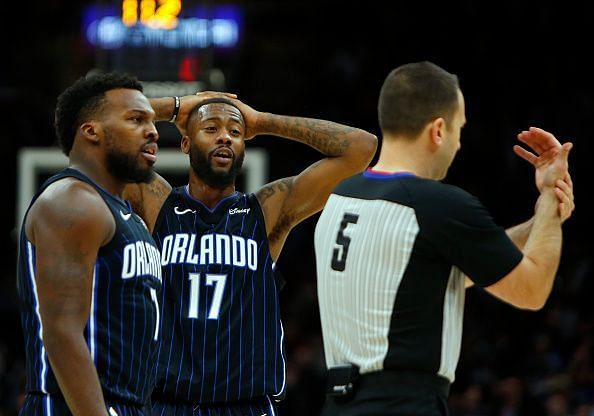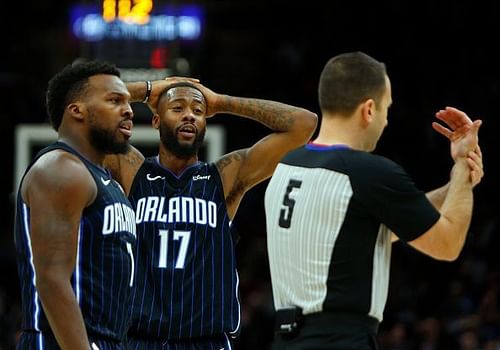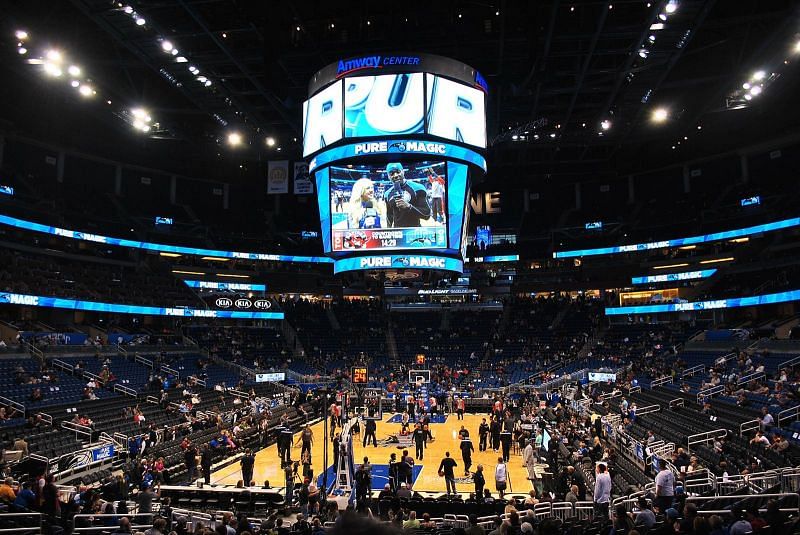
NBA: Can Orlando Recapture Their Past Magic?

The Orlando Magic are bad and worse, they are boring. The NBA has become one of the most popular sports leagues on the planet, and as this past offseason and last week’s trade deadline proved, the action off the court captivates fans and the sports world nearly as much as the games themselves do. With the additional focus that comes with the league’s still-increasing popularity, boring is perhaps the worst thing a team can be in the modern NBA.
Let’s be clear, having a bad record does not make a team boring, and having a good record does not make a team interesting. The 'Trust The Process' Philadelphia 76ers were a bad team with a worse record, but they were a fascinating experiment that created legions of Sam Hinkie and Process devotees in Philadelphia and the general NBA fandom.
On the flip side, the mid-2000s San Antonio Spurs were consistently among the NBA’s best teams but they had a reputation among non-Spurs fans as being boring in their excellence (the modern Spurs are still among the league’s best, but are now regarded as a squad that plays some of the league’s smartest, most aesthetically pleasing offense).
Orlando, however, has been putting teams on the floor that are bad in the standings while also failing to capture the imaginations of fans in any redeeming way. While they have a nice arena, just about everything else about this franchise is boring. Long gone are the days of front office drama and Playoff runs fueled by Dwight Howard in central Florida. At this point, the most interesting thing about this team is probably Disney being their jersey sponsor.

So how did Orlando get here, with a roster bereft of excitement outside of the occasional dunk contest participant? Ironically enough it may have been big-swing efforts at improving the on-court product that ultimately kept the team from actually improving. The trade for Serge Ibaka is the most obvious example of this, though even that deal wouldn’t have been possible without some terrible earlier decisions.
The Ibaka deal was endemic of the terrible front office decisions that brought Orlando to their current sorry state. The Magic overpaid for a player approaching free agency, sending away enticing assets like a first-round pick and Victor Oladipo, a player who was recently named an All-Star reserve. Once Ibaka got to Orlando an easily predicted logistical logjam presented itself, as Ibaka took valuable minutes away from Nikola Vučević while forcing Aaron Gordon to play out of position. Once it became obvious Ibaka wasn’t working out Orlando shipped him to Toronto, receiving far less than they gave up for him.
Unsurprisingly, the executives behind the past few seasons of bad decisions were fired, and former Milwaukee Bucks general manager John Hammond is now making personnel decisions for the team. While it is still early days for the Hammond regime, Magic fans are to be forgiven if they get excited about having the man that drafted Giannis Antetokounmpo running things.
Changing leadership was the right decision for Orlando, and by most accounts the team they brought in to take charge understand the modern NBA in a way that should give Magic fans hope, and lots of it. At this point, however, hope is all there is.
Outside of LeBron James recruiting a few of his best buddies to come play for your team, there are precious few immediate fixes in the NBA. Recent draft choices Jonathan Isaac and Mario Hezonja still have potential and physically appear to have been built specifically for today’s NBA, while Vučević and Gordon have proven themselves to be solid, if unspectacular, NBA players.
So yes, there’s hope in Orlando. It’s faint but stronger than a year or two ago. With luck and steady management, this is a franchise that could turn into something, a team that can become relevant like the Shaq and Tracy McGrady and the Dwight eras before it. For now, however, they are an afterthought in a league where boring is the worst thing you can be.